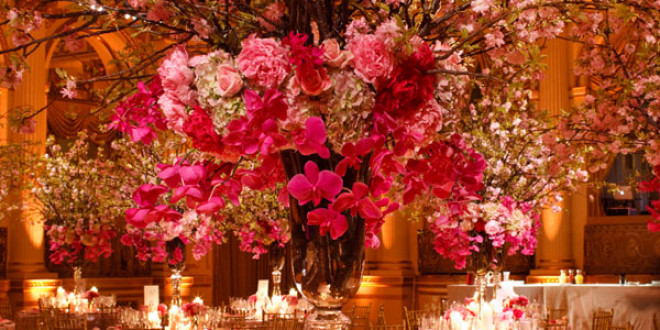[ad_1]
When you are planning for your reception, there will be many decisions to make about which customs, rituals, and traditions to include and which to discard. One of the wedding rituals that has become controversial over the years is the Dollar Dance or Money Dance. If you are thinking of including this dance at your wedding, or are just wondering what it is, this may help to clear up the confusion.
The Dollar Dance is a part of the wedding reception that is common in some parts of the United States and absolutely unheard of in others. Its origins are said to come from European immigrants from Italy, Poland, and Russia to name just a few countries, and it is also practiced in some island nations like Cuba. The basic premise of the Dollar Dance is that the wedding guests pay a small sum for the privilege of taking a spin around the dance floor with the bride or groom. The idea is to help the newlyweds get off to a good start financially or to help cover the cost of the honeymoon.
The controversy surrounding the Dollar Dance is whether or not it is ever okay to ask your guests to fork over money to dance with the hosts. The short answer is, it depends. In certain communities, often those with strong cultural ties to the countries from which the custom origins, some form of the Dollar Dance is seen at almost every wedding. If this is true, then your guests will probably consider it to be just another standard part of a wedding reception, and will not blink an eyelid at it.
However, if one of the families does not come from a place where the Dollar Dance is customary, they are likely to find it to be quite tacky. From a logical standpoint, the whole ritual only works when the guests are familiar with it and are willing participants. If the only response to the dj's call to the dance floor for a money dance is appalled silence from the guests, the newlyweds will a) not make any money and will b) end up highly embarrassed.
To those who are unacquainted with this custom through their heritage, the Dollar Dance can feel like nothing more than a shakedown. You are likely to hear a lot of grumbling about all the money that your guests have already spent on your money, like the new dress and jewelry, airfare and hotel room, not to mention the bridal shower and wedding gifts. As the last thing that you would want to do is offend your guests, a good rule of thumb when it comes to the Dollar Dance is, when in doubt, leave it out!
If the Dollar Dance is a part of your heritage and you decide to go ahead with one, there are a few basic ways to organize it. It is usually held either following the spotlight dances for the newlyweds and bridal party, or the Dollar Dance comes about an hour before the end of the reception, after the cake cutting. The male guests will line up to dance with the bride, and the female guests line up to dance with the groom. The money can change hands in a couple of different ways. In some places, the best man and maid of honor will be stationed near the dance floor with baskets. In the Italian tradition, the bride carries a little (or not-so-little) silk purse to collect the cash (remember the wedding scene in "Goodfellas?"). Polish or Russian brides may wear a fancy white apron in which to store the cash gifts, in honor of her new status as a wife. There is also a custom in which the guests pin the money to the bride and groom, but this looks like it could be damaging to a silk gown or a rented tux.
The actual time spent with each guest is about 30 seconds before the next guest cuts in. The guests usually take the moment to tell the bride how beautiful she is in her white gown and wedding dress, and she thanks them for coming. Some couples who like the idea of spending time dancing with each guest but are not comfortable asking them for money will substitute a Wishing Well Dance, in which each guest gives the newlyweds a written wish for their future happiness instead of money. Personally, I think that this is a lovely custom that is not only an excellent replacement for the Dollar Dance, but a nice idea for any wedding.
[ad_2]
Source by Bridget Mora

